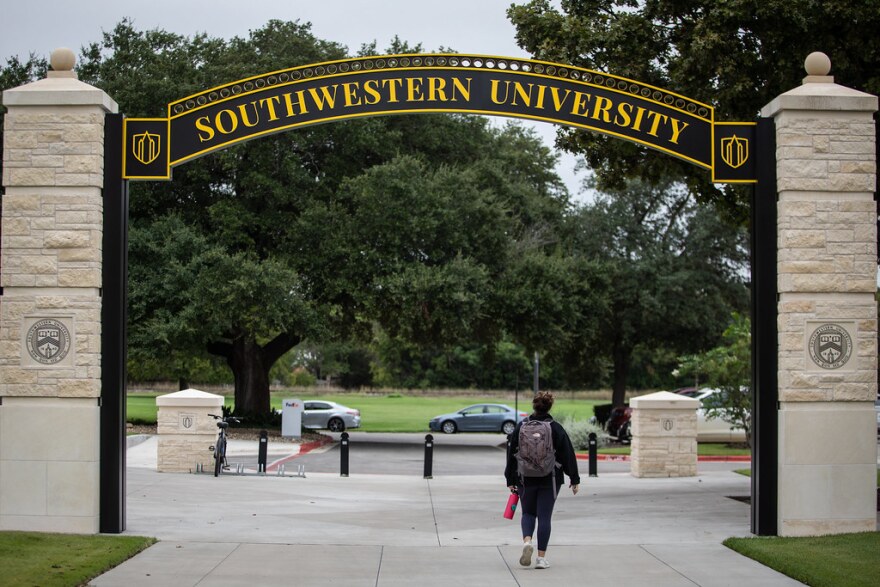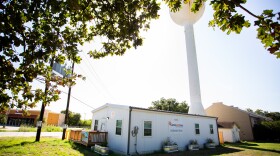Alex Bell knew senior year at Southwestern University was going to look like no other, but the anthropology major wanted to be back on campus.
“Having a separate workspace and home space for me is really important,” Bell (who goes by "they") said. “So I kind of wanted to do in-person as much as was available to me."
Bell received some scholarships, but also works to pay for school. When the pandemic hit, they were coming back from studying abroad, and their workplace had temporarily closed. Bell lived off savings while looking for another job, then turned to Southwestern for help.
“I actually had to use the emergency fund to get groceries when I first came back to the United States and was unemployed,” Bell said, referring to a fund set up by the Georgetown school to help students. “This past month, I was struggling [and] had some unexpected expenses come up. And so, yes, Southwestern has provided me with groceries a couple of times this year.”

The COVID-19 pandemic has hit people of color harder than other populations, both physically and economically. And with lost income and health concerns, many students of color have not re-enrolled in college this fall.
Southwestern University in Georgetown is trying to reverse that trend. That meant helping Bell cover some bills so they could continue their education.
Senior Jasmine Herrera, a first-generation college student studying environmental studies and Spanish, faced a similar decision about whether to return. Because of the pandemic, her parents suggested she stay home, but she ultimately decided to go back.
“Personally, I do not have the ... funds to not go back to school," Herrera said, “being that scholarships are not going to be refunded for future years. And so I honestly cannot miss my chance to go back to school.”

Herrera said the idea of returning was “daunting,” but she wanted to take advantage of the opportunity of college while she could. She said she took comfort in the school's efforts to mitigate COVID-19 risks, like offering virtual classes, requiring masks and limiting capacity in cafeterias and study spaces. All students also had to test negative for the coronavirus before returning to campus.
“I do feel safe and comfortable saying that Southwestern is considering the safety of their students and their health and taking into consideration their families,” Herrera said.
Tom Delahunt, Southwestern's vice president for strategic recruitment and enrollment, said the university's small size – fewer than 2,000 students – lends itself to close relationships. That allows it to help with financial aid and communicating with families.
Those relationships are what led sophomore Eugenia Agobe to return to school this year – though she's taking classes only online. She was motivated by her professors.
“I think the biggest decider was that I love my professors so much,” Agobe said. “It was like totally unthinkable to me to take a leave of absence.”
Delahunt said those close connections, as well as the school’s efforts to teach “financial literacy” to families, has helped Southwestern to not only maintain enrollment, but also become more diverse.
"We knew we needed to recruit in certain parts of the state more than we had in the past," he said, "but also to educate people better about what it means to go away to college and especially now in a pandemic, when so many people's financial situation has been impacted."
Hispanic and Latino students now represent a third of the school population. Black and Asian or Pacific Islander students each make up 10%. Delahunt said Southwestern hopes to fill the small student body with “people from all walks of life.”
“We're a small university,” he said. “We're sort of an odd size in the state of Texas being so small. So we're looking to shape our class. We're looking to make sure we have people from all walks of life. We have really revamped our recruitment efforts as we tried to make sure that our student body looks like the state of Texas.”
Got a tip? Email Allyson Ortegon at aortegon@kut.org Follow her @allysonortegon.
If you found the reporting above valuable, please consider making a donation to support it. Your gift pays for everything you find on KUT.org. Thanks for donating today.





